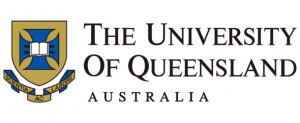 Ireland has worked for years to create collaborative environments that industry can lean on to realize the potential of new technologies, like AI. Now, the country is forming a new ecosystem that companies can use to research and develop first-of-their-kind applications for quantum technologies as reported by The AI Journal on October 4.
Ireland has worked for years to create collaborative environments that industry can lean on to realize the potential of new technologies, like AI. Now, the country is forming a new ecosystem that companies can use to research and develop first-of-their-kind applications for quantum technologies as reported by The AI Journal on October 4.
Ireland’s Quantum 2030 Strategy aims to build out the pillars that are for essential quantum technology innovation A key pillar for any disruptive technology is – talent.The world’s quantum technology workforce will be built from today’s STEM professionals who can be upskilled to take on key quantum technology roles. Ireland has the highest STEM graduates per capita in all of Europe.
Ireland is also helping grow its quantum technology workforce through academic-industry collaboration. The new Quantum Programming Foundations courses delivered through the University of Galway and the Irish Centre for High-End Computing (ICHEC) is offered as a micro-credential. Additionally, Trinity College Dublin offers a Master degree in quantum science and technology.
Another pillar of Ireland’s 2030 strategy is advancing academic research in quantum technology. For example, at the Science Foundation Ireland’s CONNECT Research Centre, researchers are exploring quantum communication advances and using quantum mechanics for secure information exchange. Trinity College Dublin, a member of CONNECT, has partnered with companies like IBM, Microsoft and others to launch the Trinity Quantum Alliance to strengthen collaboration between top researchers and industry experts in Ireland.
Ireland is also bringing the value of quantum into its communication infrastructure
Quantum News Briefs October 5: Senators Want Answers from DOD on Quantum Sensing Efforts • NordVPN Has Launched Its First App with Post-Quantum Encryption Support • NIST, Cryptography & The Future of VPNs • Ireland’s Quantum Leap • U of Queensland secures $29 million through the Queensland Quantum &Advanced Technologies Strategy

In Other News: NextGov reports “Senators Want Answers from DOD on Quantum Sensing Efforts”

Two U.S. senators are working across the aisle to get answers from the Pentagon about its efforts to advance quantum sensing — whose promises include jam-resistant position-navigation-timing systems — and whether the U.S. military can keep pace with China in the field, as reported by Patrick Tucker in October 4 NextGov.
Sens. Maggie Hassan, D-N.H and Sens. Maggie Hassan, D-N.H. Blackburn cite a September report from the Information Technology and Innovation Foundation, or ITIF, that finds “China leads in quantum communications…and matches the United States in sensing, excelling in market-ready tech, while the United States dominates high-impact areas.”
The Defense Department and the services have various investments in quantum sensing, including a $55 million effort to lay the groundwork for moving to quantum sensors. But as the ITIF report points out, China has a clear lead in quantum communication and there are some indications that it is leading in quantum sensing as well, due in part, to a focus on these more near-term applications over quantum computing hardware development.
In Other News:PCWorld Reports “NordVPN Has Launched Its First App with Post-Quantum Encryption Support”
Sam Singleton, Assistant Editor, PCWorld reported on October 3 that NordVPN has just released its first-ever app with post-quantum encryption support.
It’s currently only available for Linux and complies with NIST standards for post-quantum encryption. The company stated that it hopes to roll out post-quantum algorithms on all NordVPN applications no later than the first quarter of 2025.
In a blog post following the launch, NordVPN’s CTO Marijus Briedis said, “Trends show that cybercriminals are intensifying what are known as ‘harvest now, decrypt later’ attacks. Simply put, they are trying to accumulate huge quantities of encrypted data and decrypt them once quantum technology is developed. Thus, the VPN industry must enter a new phase of development to defend against future quantum computing threats.”
In Other News: Tech Radar on “NIST, Cryptography & The Future of VPNs”
Tech Radar has published an article by , the founder of hide.me VPN, who provides an explanation of the importance of the post-quantum encryption standards for VPN users as well as for the VPN industry.
Quantum computing has the ability to render current cryptographic systems obsolete, potentially undermining the very foundations of digital security. Anticipating this challenge, the National Institute of Standards and Technology (NIST) has recently finalized a set of quantum-resistant encryption standards. NIST’s process involved evaluating more than 80 algorithms to determine their resilience against quantum attacks.
The result is a small but robust set of encryption tools designed to withstand the immense computational capabilities of quantum machines. These standards include not only the computer code for encryption algorithms but also detailed instructions for their implementation and clear guidance on their intended applications. These standards are designed to secure a wide array of sensitive data.
These resources are invaluable for the VPN industry empowering it to prepare systems for the quantum era, ensuring the support of post-quantum cryptography while maintaining critical compatibility and interoperability with our existing infrastructures. Click here for complete TechRadar October 4 article.
In Other News: The AI Journal Reports “Ireland’s Quantum Leap”
U of Queensland secures $29 million through the Queensland Quantum &Advanced Technologies Strategy
 The University of Queensland has secured more than $29 million through the Queensland Quantum and Advanced Technologies Strategy according to October 4 news release.
The University of Queensland has secured more than $29 million through the Queensland Quantum and Advanced Technologies Strategy according to October 4 news release.
The 10 UQ projects include using quantum technologies to help with decarbonisation, computing, athlete performance, diagnosing concussion and athlete drug tests.
UQ Vice-Chancellor and President Professor Deborah Terry AC said the funding, which also includes 47 scholarships for UQ postgraduate research students, would ensure the University continued to be an international leader in developing quantum knowledge.
“These projects put us in a strong position to develop technologies to have real impacts on the world’s biggest challenges in areas like health, pharmaceuticals, resources and decarbonisation,” Professor Terry said


















